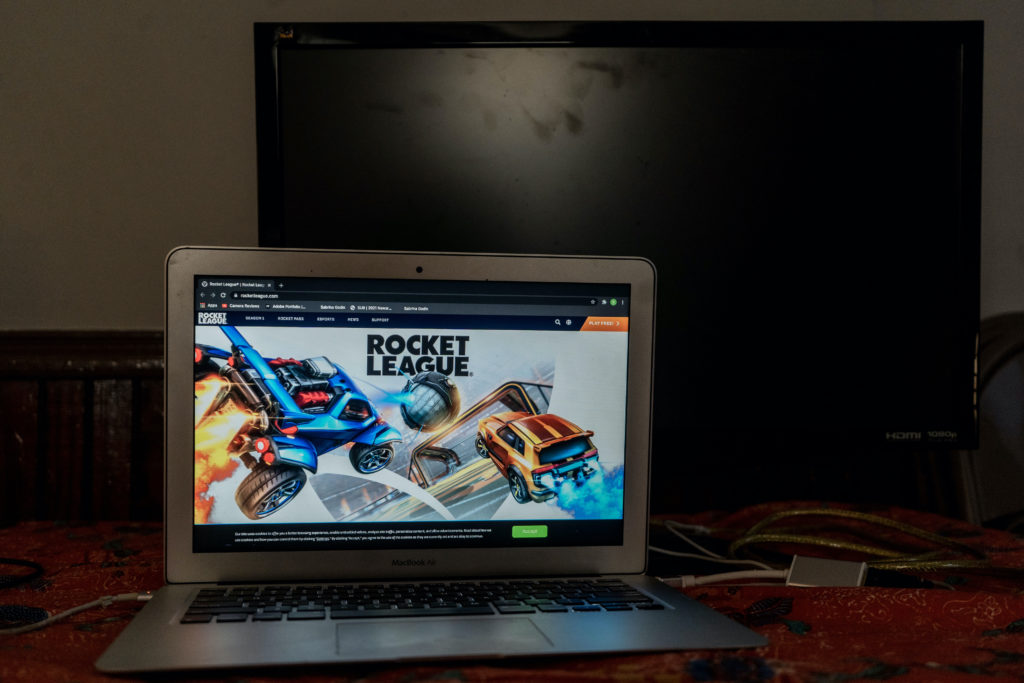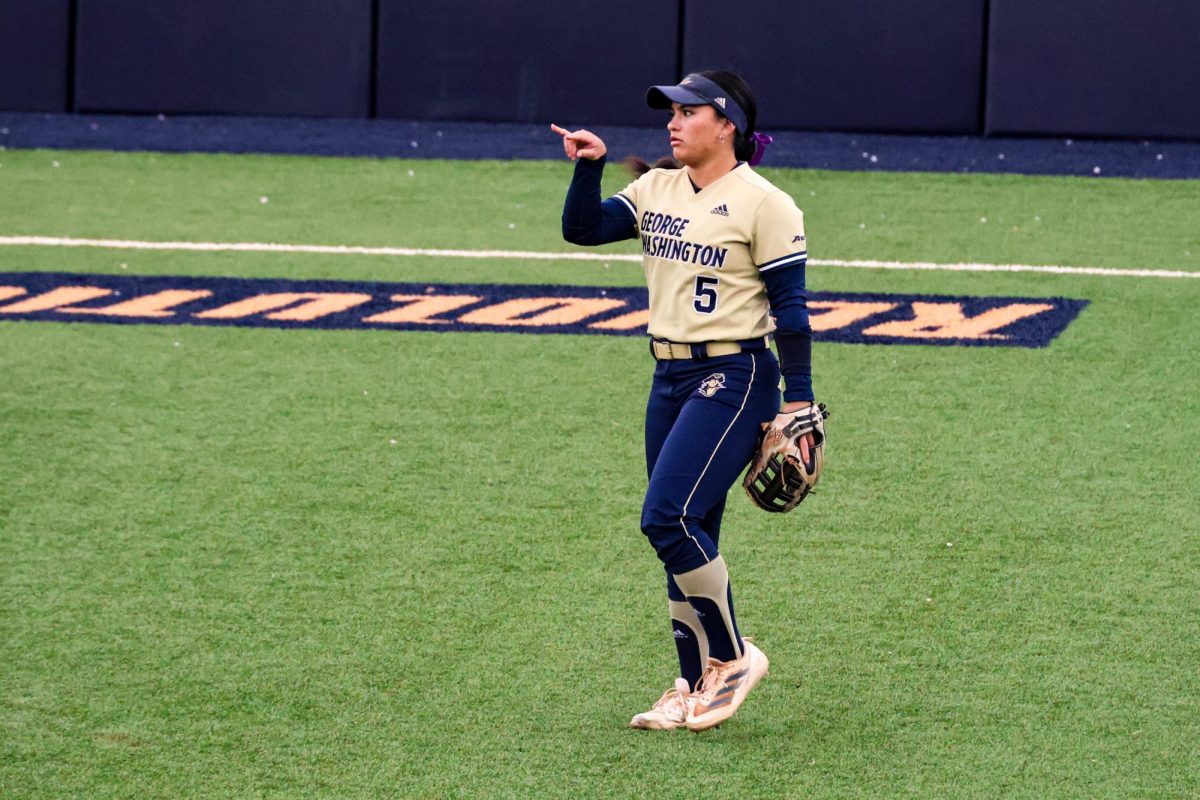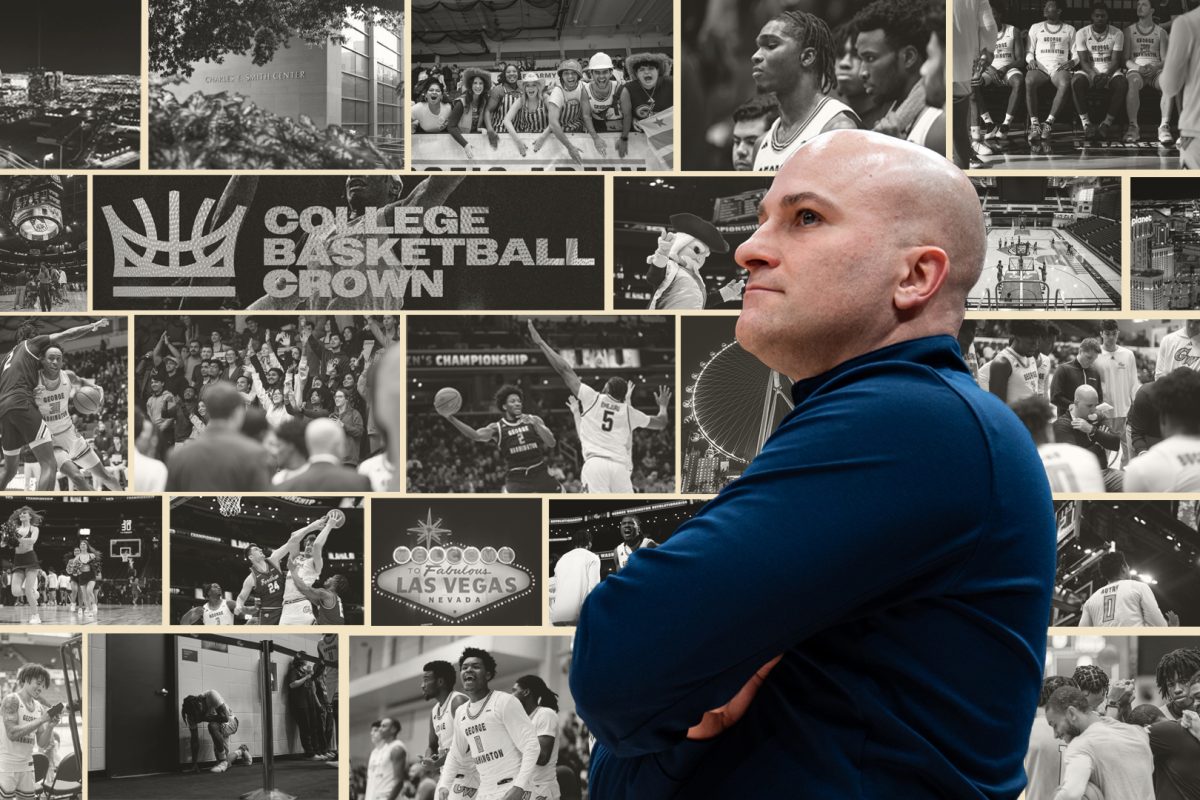Many traditional college sports are on hold due to the COVID-19 pandemic, but esports is providing a temporary replacement on college campuses – Foggy Bottom included.
The Atlantic 10 hosted a Rocket League tournament that culminated on Oct. 31. The tournament featured a school-wide leg and a league-wide round in which participants could win up to $600 and $1,200, respectively. Students who got involved in the tournament said the pandemic has helped esports grow in popularity across universities while many teams aren’t competing.
“It’s really giving that platform, that space for people to be like, ‘Hey, I’m going to find something new that I can do at home, be safe, maybe make some friends online that way,’” sophomore Alex “astengel” Stengel said. “There’s some opportunities that people didn’t honestly really consider before.”
Rocket League is a fast-paced, three-on-three game where each player controls a rocket-powered vehicle with the objective of getting an oversized ball into the opponent’s goal. Matches are five minutes long, and if the teams are tied at the end of that period, a sudden-death overtime is triggered.
“With everybody having to stay home and having to direct their attention to other things other than traditional sports or anything live, I think esports has only improved over this pandemic.”
Unlike some of its conference peers, the University does not host any official esports teams. GWe, a club that organizes regular video game tournaments for students, coordinated on its own to get in on the action.
The head of GWe, senior Justin Sun, caught wind of the A-10 Rocket League tournament and reached out to Stengel about getting a team together.
“It was a great opportunity for me to get my team in a tournament, as well as try to expand the base of GW’s Rocket League teams,” Stengel said.
Stengel added that the Rocket League community on campus is relatively young. He said the club team was created his freshman year, and finding players can be difficult because of the squad’s club status.
He said he met one of his current teammates, freshman Eric “Sticx” Holm, randomly through an online ranked match. After noticing the player sported a GW logo, Stengel said he sent him a message asking if he would be interested in joining the club team.
The third member of the roster, freshman Will “Scheme” Fleming, was discovered via a GW tournament hosted by the Intramural Sports department earlier this year. The department created online tournaments from August through October for students to play games, like Rocket League and Super Smash Bros.
Stengel rounded out the team with the late addition of Gavin, a freshman at Syracuse who plans to transfer to GW next year.
“We hadn’t really played with Gavin – Gavin is actually a lot better than any of us are,” Stengel said. “We’re all like the top 0.5 percent of Rocket League players, but he’s like the top 0.1 percent. And that skill gap – Rocket League has a really high skill ceiling.”
Stengel’s GWU A romped through the University’s open qualifiers, sweeping its opponents in the best-of-five quarterfinal and semifinal rounds. In the best-of-seven final, his team maintained its perfect record with a 4-0 win over GWU B.
As the winners of the qualifying tournament, GWU A won $600 while the runners-up received $300. All prizes were courtesy of Capgemini, which sponsored the tournament. Stengel said he was thinking about upgrading his computer with his fourth of the prize money.
Both advanced to the A-10 Tournament, with GWU A entering as the No. 2 seed. Both GW teams were placed in the same side of the bracket, meaning they had the chance to face each other in the second round.
GWU A took care of business in its first match, sweeping Rocket Buddies 3-0, but GWU B fell in similar fashion to Sad Cat. GWU A sought revenge for their fellow Colonials, rolling through to the semifinals with another 3-0 victory at Sad Cat’s expense.
In the semifinals, GWU A was matched with UMass RL A Team, which also had a perfect tournament record up to that point. Although GW won the series 3-0, each game was decided by one goal, and Stengel said Massachusetts will likely be GW’s biggest rival going forward.
Stengel said the A-10 is considering running the tournament on an annual or every-semester basis, adding that he enjoyed the school rivalries that it created on the virtual field.
George Mason also had its A and B teams enter the tournament. Esports officially became a departmental student organization this semester, meaning its Rocket League manager, Daniel Harrison, is a paid employee of George Mason rather than just a student volunteer. The players also receive some perks like traditional athletes do.
“Student Involvement at George Mason University recently took us under its wing and we got everything legit and on paper, and everything is much more supervised now,” Harrison said. “And everything’s going through a process, like we’re getting a practice room in the university. Everything is being put on the official university – social medias, newsletters and everything.”
GMU B upset No. 1 seed Gengar’s Gengars in the first round of the tournament and swept URI FC in the quarterfinals en route to a showdown with GMU A. In the semifinals, GMU A brushed aside its junior team, 3-0.
In the final, GW was able to win a map but ultimately lost to GMU A by a match score of 4-1. GMU A walked away with $1,200, while the Colonials were rewarded $600 for their run.
With the future of live collegiate sports still in flux because of the pandemic, esports has an opportunity to carve out a larger space and become more mainstream, especially on college campuses, Harrison said.
“With everybody having to stay home and having to direct their attention to other things other than traditional sports or anything live, I think esports has only improved over this pandemic,” he said.








